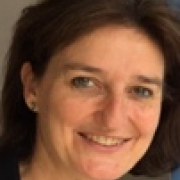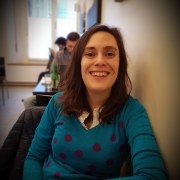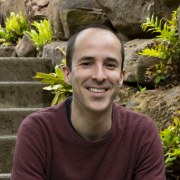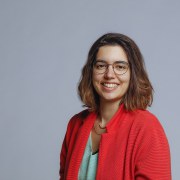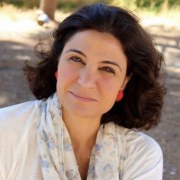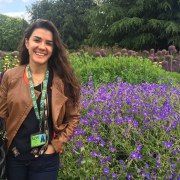Reaching beyond borders: innovation in vulnerable communities
Commitment: Equity & inclusion
How do you create equitable community engagement programmes to reach underserved communities? Come and explore off-site community engagement activities serving some of the most vulnerable communities in society. Native Scientist, who overcome language and cultural barriers, work with scientists in outreach programmes delivered in the communities’ heritage languages across Europe. Cartas com Ciência work with scientists to create impact through snail mail in East Timor and São Tomé and Príncipe.
In this session, explore the do’s and don'ts of a science communication start-up initiative. Find out how scicomm can be used as an expression of equity and social justice through the inspirational STEM4Refugees programme in Lebanon, and discover a pilot project which applied the Ecsite Equity, Diversity and Inclusion (EDI) Framework to a non-science outreach programme in the UK.
Facilitator
Audience Engagement Advisor
Session speakers
Native Scientist develops science education and outreach programmes for ethnic minority and migrant children. Since 2013, more than 20,000 child-scientist connections have been made in 8 European countries. Marta, who launched the project in Switzerland, will share her experience and discuss ways of assessing and evaluating impact and effectiveness. Results of a randomized controlled trial indicate that it is possible to foster migrant children’s motivation for science through science outreach.
Co-founder and co-director
“Cartas com Ciência” organizes educational programmes of letter exchanges between pupils from unprivileged communities in Portuguese-speaking countries and scientists across the globe. What is it like to create a spin-off and operate in a multi-continent setting? The founders of the project, launched in May 2020, will share their experiences on overcoming challenges related to more than 200 letter exchanges facilitated so far, while keeping focused on their mission and evaluating its impact.
Co-Founder, Co-Director & Postdoctoral Fellow
CIDTFF - Research Centre on Didactics and Technology in the Education of Trainers, Department of Psychology and Education, University of Aveiro; Cartas com Ciência
“Cartas com Ciência” organizes educational programmes of letter exchanges between pupils from unprivileged communities in Portuguese-speaking countries and scientists across the globe. What is it like to create a spin-off and operate in a multi-continent setting? The founders of the project, launched in May 2020, will share their experiences on overcoming challenges related to more than 200 letter exchanges facilitated so far, while keeping focused on their mission and evaluating its impact.
Education Researcher and Co-Founder of Sonbola NGO
Sonbola Group For Education & Development NGO (Sonbola)
STEM4Refugees, is a program designed by Sonbola, launched in Fall 2016 and awarded at the UN Solutions Summit in September 2017. The program challenges the Humanitarian Response model by demonstrating that quality education (SDG#4) is possible in times of crisis, and provides a change making solution by turning STEM into a powerful experience that equips refugee children with learning, thinking and social skills. Most importantly, it achieves that hand in hand with the refugee communities.
National Outreach Manager
Where We Are is a UK-wide outreach programme that co-produces arts projects with youth who are under-served by the museum sector. In 2020, it became the only non-science programme in Europe to pioneer the ECSITE Equity Diversity and Inclusion (EDI) framework. The speaker, a science communication professional, will discuss the crossover and differences of EDI and youth engagement in science and arts, giving examples of equitable partnerships with science and non-science museums.

